Bellini: Norma (Reynolds)
Introduction
A performance of Bellini`s early Romantic `bel canto` opera, recorded at Het Muziektheater, Amsterdam in 2005, conducted by Julian Reynolds.
The action (such as it is, in amongst the confusion of the production) takes place in Roman-occupied Gaul.
The druids, led by their leader Oroveso, have met to pray for the defeat of the Romans who have conquered their lands. Pollione (the Roman proconsul) is there as well, and when the druids have left, admits to his aide that he is no longer in love with the high-priestess, Norma (Oroveso`s daughter), but with a younger model, Adalgisa. The druids come back and Norma prays for peace. Adalgisa waits until she is alone to pray herself that she can resist Pollione, but he returns and tries to persuade her to got to Rome with him.
Norma suspects something is happening, but has no idea who the new woman is. Adalgisa tells her that she has a lover, and Norma is prepared to release Adalgisa from her vows until Pollione appears and things are made all too clear. Pollione is insistent thet Adalgisa travels with him, but the young priestess says that she would rather die.
Norma tries to kill her two children (by Pollione) rather than have them go with him, but relents and hands them over to Adalgisa so that she may take them to their father. The request is refused, with a plea to protect the children and a request that Adalgisa go to Pollione herself and persuade him to return to Norma.
The druids meet up again to hear Oroveso claim that Pollione is being replaced by a more brutal commander. Despite this he demands patience, so that the planned revolt is more likely to succeed.
Norma discovers that Adalgisa`s pleas fell on deaf ears, so she begins to demand that the people rise up and fight the Romans straight away. Oroveso demands that a scarifice be made, and Pollione is dragged in. Norma tries to persuade him to give up on Adalgisa, but he refuses, so she admits her affair with the enemy commander and becomes the sacrificial victim herself. Pollione is so moved by her bravery, that he joins her on the pyre after Norma begs Oroveso to look after their children himself.
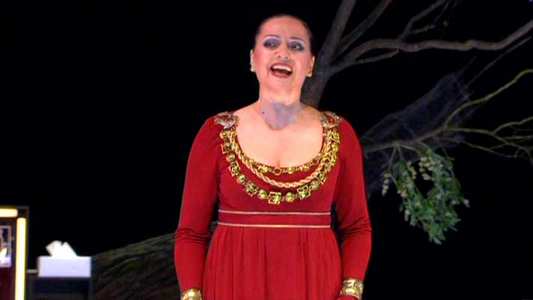
Video
Video quality in this NTSC anamorphic production is fine, with very little detail lost in the darker scenes, although I did notice some patchy `throbbing` in the non-lit surroundings from time to time.
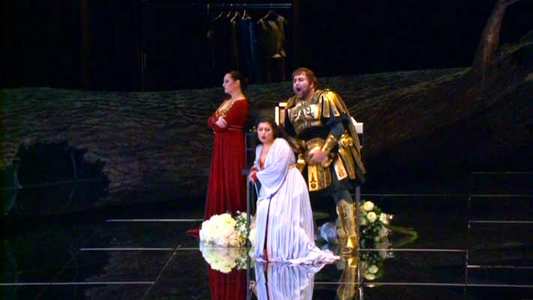
Audio
The sound is presented in LPCM stereo and DTS. I opted for the DTS option (seemed unfair not to), and overall, the quality is impressive with only one or two momemts (notably the climaxes at the end of each act) when the orchestra tended to overpower those on stage. The general clarity can be too much of a good thing at times though, as we are constantly reminded of a bad cold from which many of the audience are apparently suffering, and some careless accidental string plucking from the pit.
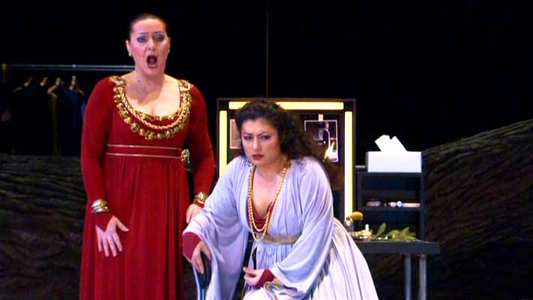
Features
The main extra consists of a 22 minute introduction in which the main players discuss their roles and try to convince us that Guy Joosten`s direction is a worthwhile addition to the whole experience, rather than a distraction. I was a little confused to start off with though, as there was a completely different soprano taking on the role of Norma at the beginning of the rehearsal period. It seems that the original was taken ill, and so Hasmik Papian stood in at relatively short notice. This was a fair choice though, as she had been singing the role for a while throughout the States and Canada with some success.
Also, we are `treated` to the usual illustrated synopsis and a cast gallery, which, as usual, is nothing more than a set of still pictures with the names of the singers.
Subtitles are provided in English, French, German, Italian, Spanish and Dutch.
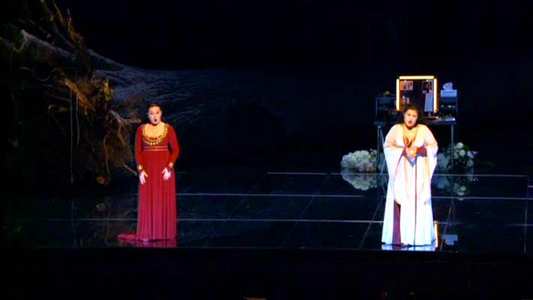
Conclusion
Here we have yet another updated production of a well-loved opera, supposedly because modern audiences expect more than just the old `stand and deliver` delivery of great tunes. An understandable point perhaps, however there have to be better ways to do it than seen here.
Guy Joosten has invented a plot within a plot, so that Norma, Adalgisa and Pollione are not only the high priestess, novice and Roman soldier, but also opera diva, understudy, and pompous tenor (the diva`s ex-lover) who are apparently having some form of `domestic` whilst performing Norma themselves.
This does nothing more than give the audience an impression that Joosten is trying desperately to be clever but failing miserably to present a dramatic `twist` which he seems to feel is necessary. Unfortunately, it just gave me a headache in trying to understand what was going on (it would have helped to have seen the introduction first - although this doesn`t make the production any better). The start sees Hugh Smith (as the tenor who plays Pollione) walking on stage, reading an article about himself in some musical magazine, hamming it up spilling coffee everywhere, and listening to the orchestra warm up over a theatre intercom. We even get a 5 minute call for the real conductor (Julian Reynolds) before we hear the opening bars of the overture.and then we REALLY hear the opening bars of the overture. Confused? I was.
Anyway, despite all this, the overall performances are very good indeed. I have a great respect for singers who can get themselves through a highly flawed production with some merit, and in most cases they have done that here.
Anyone taking on the title role in this work is bound to be compared to Maria Callas (not always favourably), quite often by those who have not actually heard Callas sing the part, but it seems the right thing to say I think. I have not seen Callas play Norma myself, although have heard a few `bleeding chunks` from the likes of Classic FM. I found Hasmik Papian to be a very powerful and persuasive Norma, and by far the best on stage for this production. She produces a real warmth and tangible emotion, especially during `Deh! Non volerli vittime`, which isn`t bad going considering this is the last thing she sings after around 2 hours on stage. `Casta Diva` is also very good, but here, some of Papian`s phrasing seems slightly breathless in places, but it`s still a great live performance.
Hugh Smith (Pollione) is less successful. Not that he can`t sing of course, but it feels as if this role is a little too much for him. The obvious way of putting this is the old and trusted `he`s more of a can belto, than a bel canto`. When his music is more lyrical, things are fine, but he has a tendency to `bark` out the sudden upper notes, and at times loses any form of legato phrasing (which I`m sure is what`s written). It would be interesting to see him in other roles. I was also struck by the fact that his speaking voice (in the `Introduction`) is definitely not what I would expect after hearing him sing, but that is completely irrelevant of course.
Elsewhere, Irini Tsirakadis (Adalgisa) does a fine job (and is certainly very watchable) with a role that really only the most versatile mezzos can produce. She has also sung the same role with Hasmik Papian in other productions, which helps develop a natural dramatic tension (again, despite the production doing all it can to spoil things).
Other roles are very solid, with Giorgio Giuseppini (Oroveso) and Anna Steiger (Clotilde) giving strong performances.
It`s a great shame that some theatre directors want to spoil things by distracting the audience from the music, but that`s exactly what happens in this production. Joosten admits himself that the syle of opera in which `Norma` falls is much more to do with the singing than the drama, yet produces a `story` which gets in the way of everything, leaving nothing much at all. The libretto now has very little connection to what is happening on stage and I found myself less involved with this opera as I would have been if everything had been left alone. Even the final self-sacrifice of Norma and Pollione is ruined by making it appear that `the diva` has just realised her career is over and walks off stage, without the man she is supposed to die with. He just wanders up lustfully to the new high priestess/diva, Adalgisa.
Luckily, I have a DVD of Joan Sutherland in the 1991 Opera Australia production. I think I`ll give that a watch.
In the meantime, if you do buy this, shut your eyes. It helps a bit.
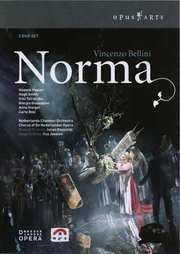
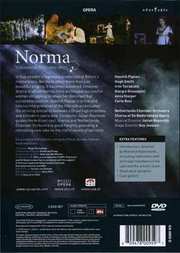




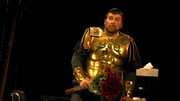
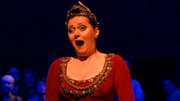
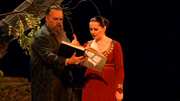
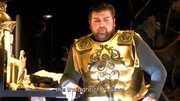
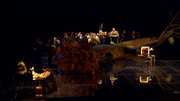
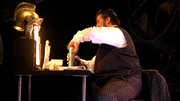
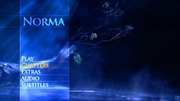






























Your Opinions and Comments
Be the first to post a comment!